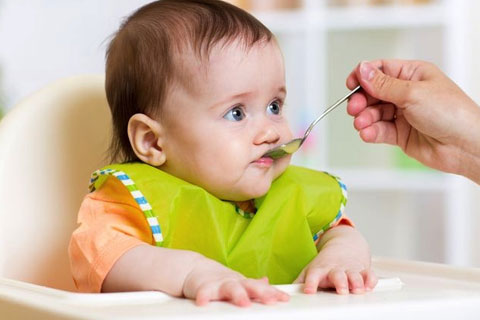
- By Aradhana Pandey
Does your baby’s diet contain wholesome and nutritious food items? Here are 7 questions you need to ask yourself about healthy baby foods.
Health food is all the rage these days. With the dangers of processed, commercial, and frozen food being repeatedly highlighted, this was bound to happen. People are focused on trying to adopt a healthier lifestyle, and this applies to their children as well. A child’s health is the foremost priority on a parent's mind. But, where do you start? What is the best health food for your baby and how can you be sure? Below we have listed seven questions you need to ask about healthy baby foods.
1. How Much Sugar Does It Contain?
As babies make the switch to regular, solid food, they retain a preference for sweet food. This is why the majority of processed foods are made sweet to suit their tastes. However,
sugar in large doses is not ideal for a young child. Sugar can lead to mood swings, spikes in energy levels and much more. When it comes to kids, sugar should be highly moderated which should be a foremost thought on any parents mind.
2. What Does My Child Require?
Depending on their age and the stage of their development, children will have different requirements from food.
Breastmilk is nutrient rich and provides all that is needed in the initial years, after which babies need more fortified food. Iron, vitamin, and protein rich foods are necessary to help your baby develop at the right pace.
3. Home Or Store Bought?
More people are turning to artificial, commercial foods for their babies as they come with a ton of ease. However, studies have found that these foods do not always match up to their nutrition claims. There are plenty of simple foods that parents can make at home that will ensure their baby gets fresh, healthy food.
4. What about Fat Content?
Fats should make up an essential part of any baby’s diet. Healthy foods are those that provide fats from healthy sources. Foods like grounded almonds and walnuts, peanut butter, oats to name a few are some of the healthiest sources of fats. However, children aged under three are given an unhealthy amount of chips, flavoured drinks, and candy that offer empty carbs and bad fats.
5. What About Quantity?
When you are
feeding your children, you have a degree of control about how much they eat. When they grow more, your children will develop an appetite and will decide for themselves. A healthy appetite is good for a young child, but a parent should monitor their intake as excess or shortage of food will lead to overweight or underweight kids. Both scenarios can compromise the growth of the child.
6. What About Proteins?
Protein is synonymous to growth. Protein ensures your child will grow up big, healthy, and strong. Eggs, chicken, and fish, are some of the healthiest sources of proteins for young kids. Most of these are meat proteins, but there are also plant-based options. Vegetarian foods with high protein content include beans, sprout, soy, tofu, and yogurt.
7. What About Fibre?
Fibre-rich foods ensure proper digestion, play a role in absorbing nutrients, and are important for a child. However, they also make your child feel full sooner and can lead to gastric problems. Monitor your baby as you increase the amount of fiber in their
diet. Make sure also to increase the water intake gradually as this will help negate any problems that may occur.
Babies can be quite sensitive to changes in their diet. That is why it is important to introduce them to healthy eating from an early age. Hopefully, this article has helped you understand and answer a few common baby food doubts. Happy Parenting!
When to introduce solids to babies? Are packaged and ready-made baby foods safe? What kinds of foods should introduced in baby’s diet while introducing solids? Discuss here.




